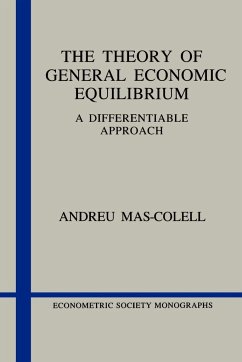
Cycles and Chaos in Economic Equilibrium

PAYBACK Punkte
46 °P sammeln!
In recent years economists have begun to use the techniques of non-linear dynamics to show that some apparently erratic and turbulent economic phenomena reflect subtle underlying patterns. How do cyclic and chaotic dynamics arise in economic models of equilibrium? How can empirical methods be used to detect nonlinearities and cyclic and chaotic structures in economic models? In examining these questions, this book brings together the most significant work that has been done to date in economics-based chaos theory. Selected here particularly for the economist who is not a specialist in chaos th...
In recent years economists have begun to use the techniques of non-linear dynamics to show that some apparently erratic and turbulent economic phenomena reflect subtle underlying patterns. How do cyclic and chaotic dynamics arise in economic models of equilibrium? How can empirical methods be used to detect nonlinearities and cyclic and chaotic structures in economic models? In examining these questions, this book brings together the most significant work that has been done to date in economics-based chaos theory. Selected here particularly for the economist who is not a specialist in chaos theory, the essays, some previously unpublished and others not widely available, describe a new tool for understanding business cycles, stabilization policy, and forecasting. The contributors to the volume are William J. Baumol, Jess Benhabib, Michele Boldrin, William A. Brock, Richard H. Day, Raymond J. Deneckere, Allan Drazen, Jean-Michel Grandmont, Kenneth L. Judd, Bruno Jullien, Guy Laroque, Blake LeBaron, Bruce McNevin, Luigi Montrucchio, Salih Nefti, Kazuo Nishimura, James B. Ramsey, Pietro Reichlin, Philip Rothman, Chera L. Sayers, Jos A. Scheinkman, Wayne Shafer, William Whitesell, Edward N. Wolff, and Michael Woodford.













